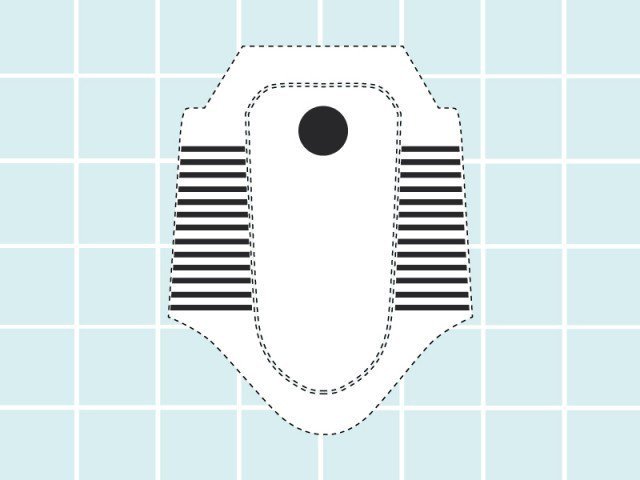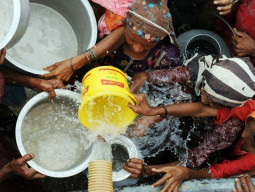
Health experts while talking to The Express Tribune in connection with World Toilet Day— observed every year on November 19—expressed grave concern over poor sanitation and hygiene conditions in Pakistan which ultimately adversely impact women and future generations.

According to a report titled, “Improving Nutrition Outcomes with Better Water, Sanitation and Hygiene”, issued on Wednesday by from UNICEF, USAID and the World Health Organization states, “Lack of sanitation, and particularly open defecation, contributes to the incidence of diarrhea and to the spread of intestinal parasites, which in turn cause malnutrition.”
Meanwhile according to the United Nations Children’s Fund (Unicef) in Pakistan, 110 children under the age of five die every day from diarrheal-related diseases stemming from poor water and sanitation while 43.7% children have stunted growth.
“We cannot afford to let the future of Pakistan, our children, die or those who survive, live without reaching their full mental and physical potential,” said Angela Kearney, Unicef Representative in Pakistan, on the eve of World Toilet Day.
Factors behind spread of infectious diseases
Health experts believe that inadequate toilet facilities coupled with lack of hand washing practices, poor water sanitation system and poor maintenance of available toilet facilities are contributing to the spread of numerous infectious diseases among people of all ages.
Unicef Pakistan WASH Specialist Kamran Naeem said, “Mostly people who urinate openly especially near food outlets or residential areas put many lives at stake.”
He said when someone urinates near food outlets germs are carried by flies who later sit on food which people are eating.
Pakistan Institute of Medical Sciences (Pims) Vice Chancellor Dr Javed Akram said, “Human urine contains many hazardous organisms which can cause diarrhea, typhoid, hepatitis A and E, gastroenteritis, cholera, dysentery among others.”
He said most public toilets are in deplorable conditions, lacking proper disposal systems and people using them are extremely susceptible to germs which cause disease.
Polio
Talking about polio he said many efforts are being made to wipe out the crippling disease from Pakistan and to achieve this major focus is on vaccinating children.
“However vaccination alone will not help eradicate the crippling disease from the country.” he said.
Women reproductive health
Unicef Pakistan WASH Specialist Kamran Naeem said in rural areas mostly women prefer to go in fields to excrete after sunset.
Throughout the day they hold their urine which usually results in lower urinary tract infection (UTI) and badly affects their reproductive health,” he said.
Published in The Express Tribune, November 19th, 2015.



































1713853507-0/MalalaHilary-(2)1713853507-0-270x192.webp)








COMMENTS
Comments are moderated and generally will be posted if they are on-topic and not abusive.
For more information, please see our Comments FAQ